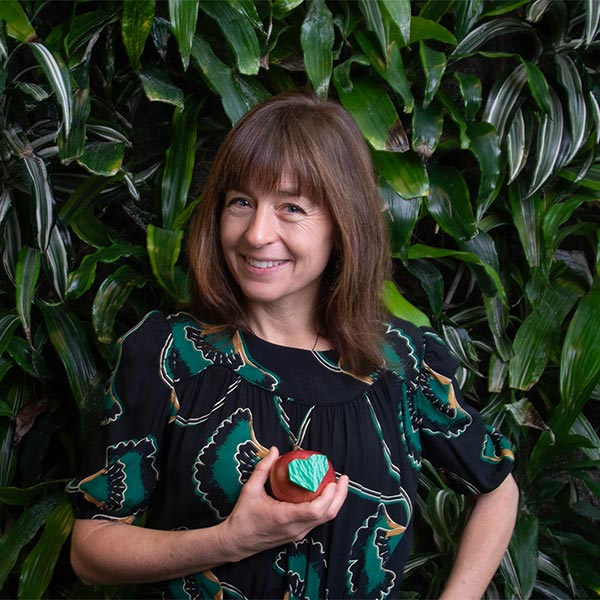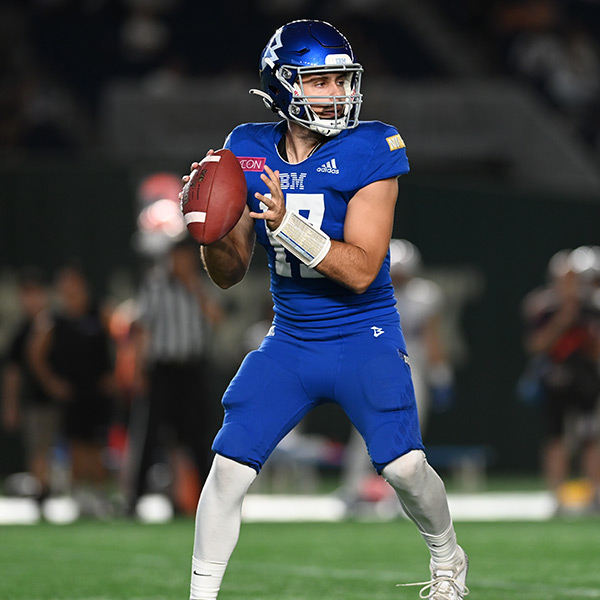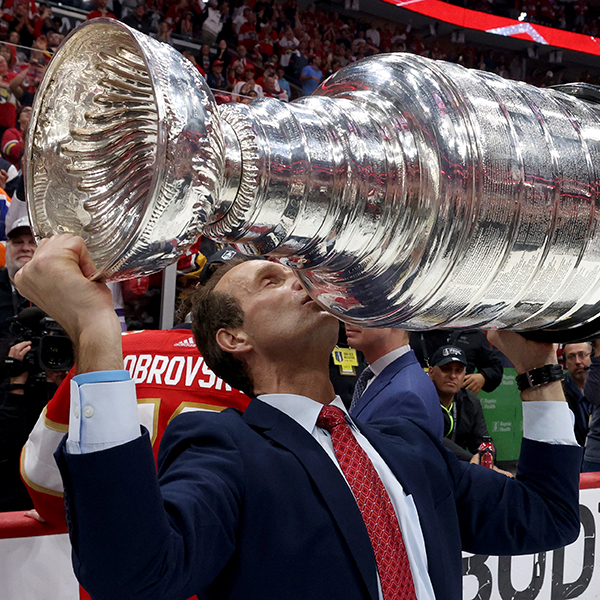The McGill 1987 Vanier Cup mug on Montreal police commander Luis Oliveira’s desk looks new, and that’s no accident.
Oliveira treats it like a sacred object. It never goes in the dishwasher to keep it from fading.
“It’s 32 years old. I’ve always told my children you never touch that mug,” he cracks lightheartedly.
Oliveira played on the offensive line (aka the “Crazy Dogs”) of the remarkable McGill team that went into the 1987 Canadian university football championship as underdogs. They trounced the UBC Thunderbirds 47-11, led by famed McGill running back Mike Soles, the game’s MVP.
“McGill was a fantastic time in my life,” says Oliveira, BEd’88, at the Montreal police station he oversees, which serves three west-end suburbs (Côte-St-Luc, Hampstead and Montreal West).
“I made lots of friends, lots of connections that even today are still there.”
Oliveira majored in physical education at McGill and considered two career plans: becoming a phys-ed teacher or a police officer.
“Ever since high school I had thought about being a police officer,” Oliveira says, but his parents weren’t keen on the idea.
He taught at high schools for two years and loved it, but was less enamoured by the yearly contracts and lack of job security. He decided to pursue his police dream – a choice he has never regretted. Along the way, Oliveira has tapped into his education background to do a lot of training and teaching as a police officer.
“It’s been in my back pocket and it’s assisted me,” he says.
Oliveira’s nearly 30-year career with the Montreal police (SPVM) has included a stint downtown in the bustling former Station 25 building.
“That was rock and roll,” he chuckles. “It’s like the TV shows that you see. It was hard-core police back then. The top officers would usually end up going there, so I learned a lot.”
He acknowledges he’s had some scares over the course of his career in terms of his personal safety.
“I’m sure most police officers, you end up arresting somebody, you put him in handcuffs, next thing you know you find a gun on him,” he says. “That’s happened to me … especially when I first started in N.D.G. [district]. There were lots of weapons…The drug war was very active in the early nineties.”
Oliveira spent 10 years in the Montreal police department’s International Missions Section, which sends officers on peacekeeping missions abroad, primarily to mentor local police.
“Basically I was responsible for the selection process of police officers from Montreal to go on missions,” Oliveira says. Along with SPVM psychologists, he also offered support to officers and their families.
Oliveira had previously gone on two international missions as an SPVM officer under the umbrella of the RCMP. In Bosnia, after the civil war, Oliveira was responsible for eight liaison officers across the country and helped coordinate police officers’ operations in search of war criminals. He also worked on local crime with NATO. In Jordan, the mission revolved around training future Iraqi police officers after the fall of Saddam Hussein. Oliveira put together a curriculum and taught Iraqi students to become police officers as well as train-the-trainer courses.
Being trilingual and coming from multicultural Montreal helped him in that work. Oliveira believes the experience made him better at his job and more thoughtful about life in general.
He recalls one incident in Bosnia when he left early one morning for NATO headquarters. As he set out in his UN truck, he rolled down the window and tossed a little bag of garbage into a big metal container, and out popped a little kid.
“He’s in there eating or sleeping,” Oliveira says.
“It scared the hell out of me because I didn’t expect a human being to pop out.” It stayed with him for the entire drive – “My mind just kept reflecting on how come this child is born and he ends up here?
“I was born in Portugal and I end up having the quality of life that I had. So life is sort of unjust,” he says, adding it made him reflect on many things. “I became even more sensitized to the differences across the world. I read a lot more on world events than I did before.”
Oliveira achieved another dream last fall when he became a police commander. He enjoys the leadership position. “I find I have an impact not only with people, but [with] managing itself,” said Oliveira who considers himself an easygoing person. “I enjoy talking to people, I enjoy finding out where they come from. I think maybe it’s connected somehow to my experiences, my travel experiences, my McGill upbringing, my missions. It seems like everything is tied in.
“And I find if you order people, it doesn’t last very long. But if you surround yourselves with quality people and you show a human interest in them, it will go much further. People will actually work for you.”


